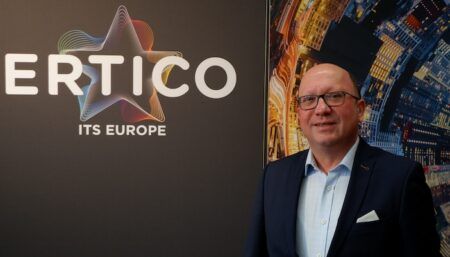Already at the forefront of the ‘smart mobility’ movement, Finland is using the ITS World Congress in Melbourne to highlight the synergy between its government and industry in developing future mobility technologies.
The Finnish government is removing regulatory boundaries and is working closely together with companies to support new mobility innovations and services. The ways countries operate, finance and regulate their transport systems are changing fast, and in order to promote the shift toward a digitized and serviced mobility ecosystem, the Finnish government and Finnish companies are currently taking large scale actions. These actions aim at enabling high-quality, cost-effective mobility services that respond to changing consumer needs. Furthermore, they will enhance the implementation of technology and digital solutions, as well as commercializing the Mobility-as-a-Service concept (MaaS), among others. Several leading Finnish companies, MaaS Global, Shareit, SITO and Vionice, which provide ITS and MaaS services, together with key public organizations, are present at the Nordic Corner at the Congress.
As one of the government’s key measures, transport market regulations will be brought together in a unified act the Finnish Transport Code. Its key aim is to create preconditions for the customer-oriented provision of transport services and digitalization in transport, as well as preconditions for new business models and entrepreneurship. The Finnish Transport Code will significantly enhance the implementation of new technology, digitalization and new business concepts, and will make seamless and mobile travel chains possible. Future transport will rely on the interoperability of data and open interfaces.
The Finnish Transport Code proposes that essential data from all transport services be made open. It also lays down provisions for the interoperability of ticket and payment systems. The Finnish Government submitted the legislative proposal for the Finnish Transport Code to the Finnish Parliament on September 22, and if passed into statute, it would enter into force on July 1, 2018.
“The entire regulatory environment will soon change dramatically, which will give Finland a leading role in terms of the digitalization of mobility services,” explained Marko Forsblom (above), CEO of ITS Finland. “The public sector can do a great deal to develop the mobility ecosystem. But innovative companies are the key driver for the technology and servitization of future mobility. The key to success is that both sectors work seamlessly together toward a joint goal.”
Mikko Koskue, senior advisor at Finpro, the Finnish international trade organization, commented, “The innovative mobility companies also represent an opportunity for knowledge-sharing on a global scale. The leading solutions and best practices originating from Finland can help other countries and municipalities to make a head start in digitalizing their transportation services.”
Finland’s Minister of Transport and Communications, Anne Berner (above), noted, “Now we have a genuine opportunity to improve transport services and also to create new business and jobs. All stakeholders have equal possibilities to enter the market and to develop their operations. The progress made by the Finnish Transport Code is good news, not only for the transport sector, but also for the whole society.”




